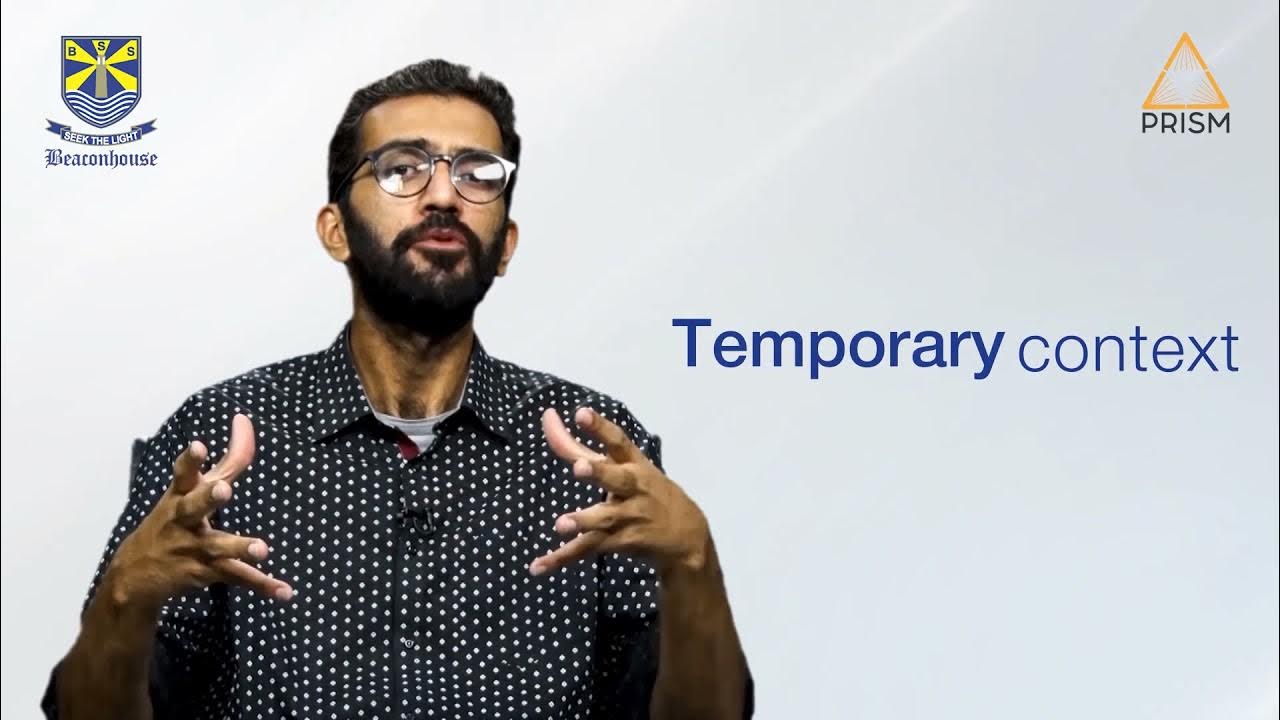Module 1 - Part 2 Why is Lifelong Learning Needed?
Summary
TLDRThis script highlights the critical need for lifelong learning in today’s rapidly evolving world. While life expectancy has increased globally, formal education systems still fail to equip individuals with the skills needed for life beyond school. The script addresses inequalities in education, illiteracy rates, and the lack of adult learning opportunities. It emphasizes the transformative potential of lifelong learning in improving literacy, livelihoods, and overall well-being. By extending education opportunities throughout a person’s life, society can harness the collective potential of 7 billion minds, creating a more inclusive, sustainable, and equitable world.
Takeaways
- 😀 Life expectancy has increased significantly from 45 years in 1950 to around 70 years today, highlighting the need for education to extend beyond childhood.
- 😀 Formal education systems often fail to prepare people for life, and educational opportunities are not always equal, leaving some people behind.
- 😀 In low-income countries, a disproportionate amount of education resources are allocated to the most educated 10% of students, exacerbating inequality.
- 😀 UNESCO data reveals that approximately 758 million adults globally are illiterate, with 63% of them living in Asia, leading to significant economic losses.
- 😀 Global illiteracy costs over $1 trillion annually, underscoring the critical need for lifelong learning opportunities to improve livelihoods and well-being.
- 😀 Despite the growing importance of lifelong learning, nearly half of the world’s countries allocate less than 1% of their public education budgets to adult learning.
- 😀 The rapid pace of technological change means that 65% of children today will eventually work in jobs that do not currently exist, highlighting the need for adaptable learning systems.
- 😀 The next generation will face even greater challenges, including inequality, climate change, and displacement, requiring a global commitment to lifelong learning to address these issues.
- 😀 Extending education opportunities beyond formal schooling can unlock the potential of over 7 billion people, improving lives and contributing to global problem-solving.
- 😀 Lifelong learning allows individuals who missed out on formal education to acquire vocational skills, improving their livelihood and opening doors to better opportunities.
Q & A
How has global life expectancy changed since 1950?
-Global life expectancy has increased significantly, rising from 45 years in 1950 to around 70 years today.
Why is education traditionally limited to childhood and adolescence?
-Education has traditionally been confined to childhood and adolescence because formal education systems focus primarily on early-life learning, and there has been less emphasis on lifelong learning opportunities.
What challenges exist within the formal education system?
-The formal education system can be unequal, often leaving certain individuals behind. For example, in low-income countries, a large portion of public education resources are concentrated on the most educated 10% of students, while many others miss out.
What is the global literacy crisis, and how significant is it?
-Approximately 758 million adults globally cannot read or write, with 63% living in Asia. Global illiteracy costs more than $1 trillion annually, highlighting the scale of the crisis.
Why is lifelong learning important, especially in the context of global challenges?
-Lifelong learning is crucial because it can support livelihoods, well-being, and sustainability, helping individuals adapt to rapid changes in society, such as growing inequality, climate change, and technological advancements.
How much do countries spend on adult learning?
-Nearly half of the countries worldwide spend less than 1% of their public education budget on adult learning, showing a lack of investment in lifelong education opportunities.
How does technology impact the future of work and education?
-Technology is evolving rapidly, and it’s estimated that 65% of children will eventually work in jobs that don’t exist yet. This shift creates a need for adaptive learning systems to equip people for the jobs of tomorrow.
What role does lifelong learning play in solving global challenges?
-Lifelong learning helps individuals adapt to new challenges and acquire new skills, enabling them to contribute to solving major global issues such as inequality, conflict, and climate change.
What are the potential benefits of extending education opportunities beyond formal schooling?
-Extending education opportunities beyond formal schooling allows people to continue learning and growing throughout their lives, which can improve their quality of life, support better livelihoods, and contribute to society.
How can lifelong learning help individuals who missed out on formal education?
-Lifelong learning provides a second chance for those who missed out on formal education. They can acquire vocational skills, training certificates, and life skills to improve their livelihoods and live healthier, happier lives.
Outlines

Cette section est réservée aux utilisateurs payants. Améliorez votre compte pour accéder à cette section.
Améliorer maintenantMindmap

Cette section est réservée aux utilisateurs payants. Améliorez votre compte pour accéder à cette section.
Améliorer maintenantKeywords

Cette section est réservée aux utilisateurs payants. Améliorez votre compte pour accéder à cette section.
Améliorer maintenantHighlights

Cette section est réservée aux utilisateurs payants. Améliorez votre compte pour accéder à cette section.
Améliorer maintenantTranscripts

Cette section est réservée aux utilisateurs payants. Améliorez votre compte pour accéder à cette section.
Améliorer maintenantVoir Plus de Vidéos Connexes
5.0 / 5 (0 votes)






